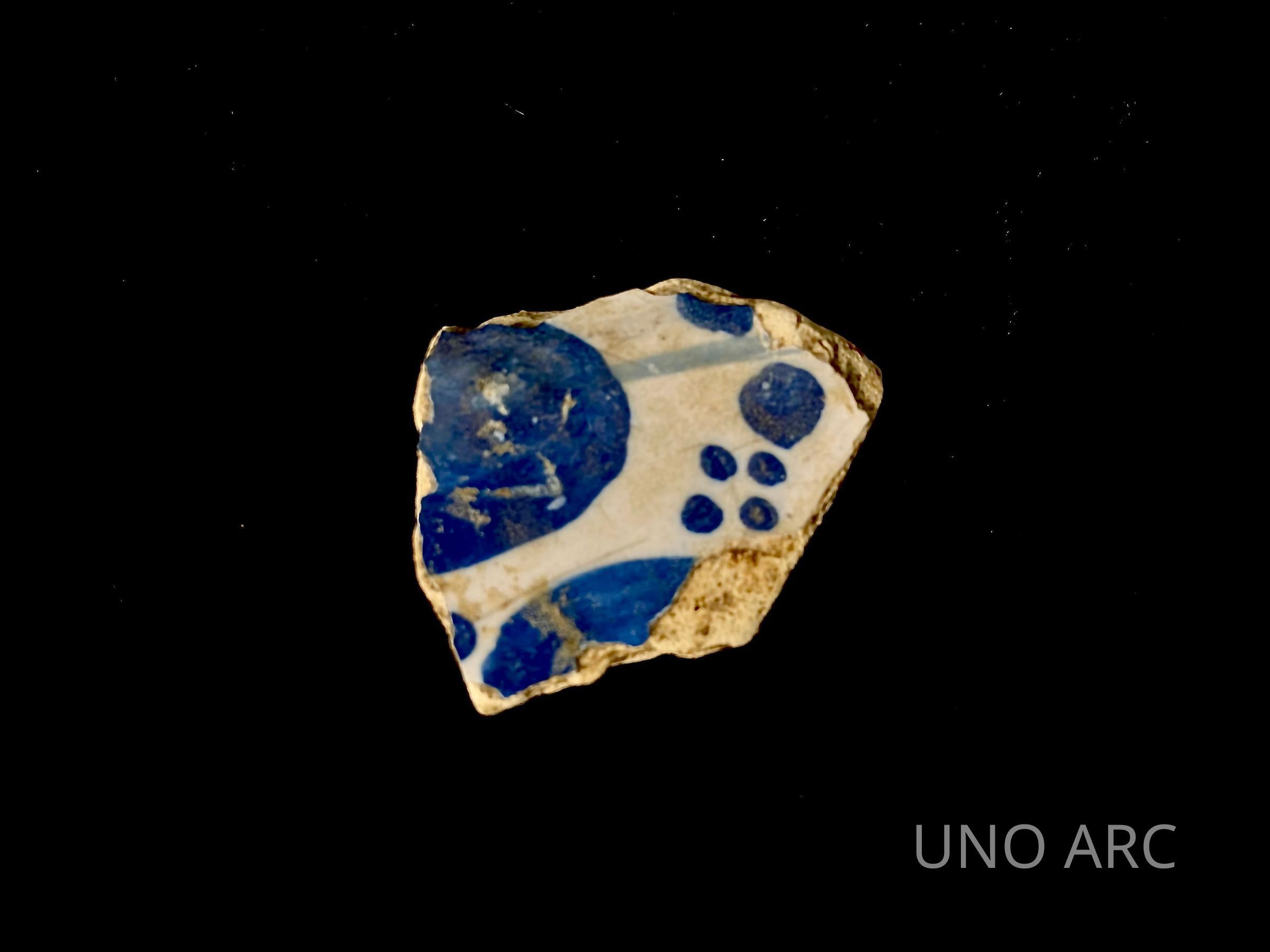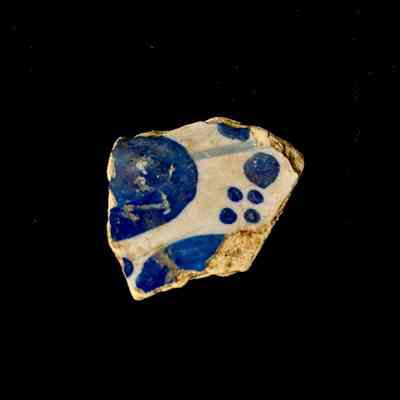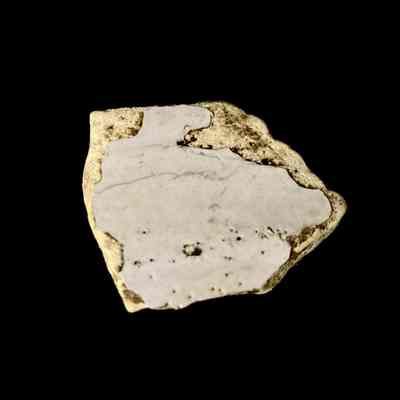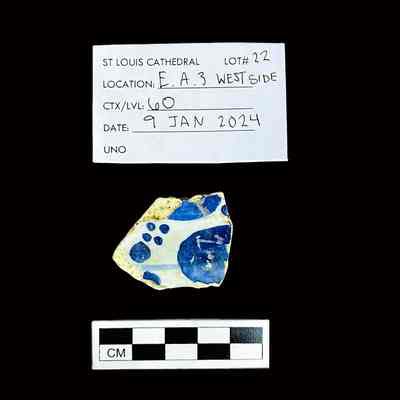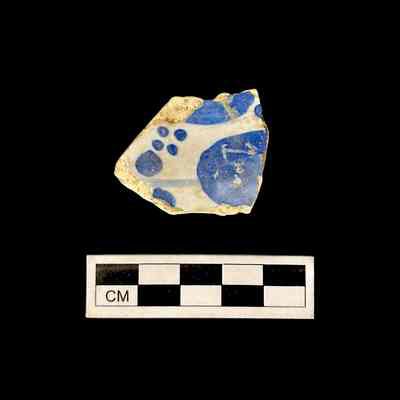Name/Title
UNO Collections: St. Louis CathedralDescription
Fragment of hand painted blue and white tin glazed MajolicaContext
St. Louis Cathedral Excavation, Lot 22, Location: EA3 WEST SIDE, CTX/LVL: 60, 9 JAN 2024Collection
UNO CollectionsCataloged By
James RothResearch Notes
Person
James RothNotes
Tin-glazed pottery is earthenware covered in lead glaze with added tin oxide[1] which is white, shiny and opaque (see tin-glazing for the chemistry); usually this provides a background for brightly painted decoration. The decorated tin-glaze of Renaissance Italy is called maiolica, sometimes pronounced and spelt majolica by English speakers and authors. The word maiolica is thought to have come from the medieval Italian word for Majorca, an island on the route for ships that brought Hispano-Moresque wares to Italy from Valencia in the 15th and 16th centuries, or from the Spanish obra de Mallequa, the term for lustered ware made in Valencia under the influence of Moorish craftsmen from Malaga.
Source: Wikipedia:https://en.wikipedia.org/wiki/Tin-glazed_potteryCreated By
anthropologyandsociology@uno.eduCreate Date
April 18, 2024Updated By
drgray1@uno.eduUpdate Date
October 2, 2024